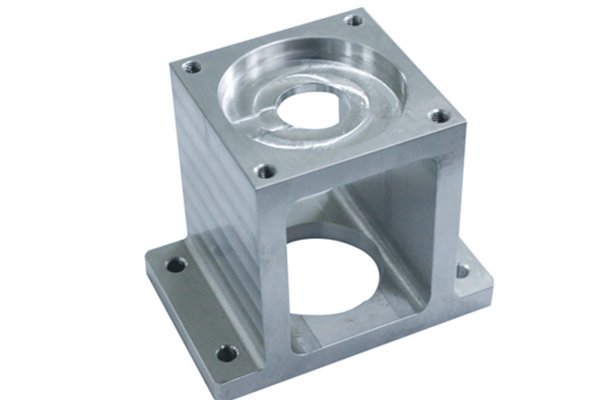—
: The Power of Precision
Did you know that the global CNC machining market is projected to reach a staggering $100 billion by 2025? This rapid growth is indicative of the increasing importance of precision manufacturing across various sectors, such as aerospace, automotive, medical devices, and electronics. With an impressive capability to create complex geometric designs with extreme accuracy, CNC (Computer Numerical Control) machining plays a pivotal role in shaping modern manufacturing.
In this comprehensive article, we’ll explore the benefits of CNC machining for precision tools and parts, delve into its various applications across industries, and outline solutions to common machining challenges. By the end, you’ll understand why CNC machining is a crucial consideration for any manufacturing operation aiming for success in today’s competitive landscape.
Understanding CNC Machining
Before we dive deep into its benefits, let’s briefly understand what CNC machining is. CNC machining is a subtractive manufacturing process that utilizes computer-controlled machinery to remove material from a workpiece, transforming it into a desired shape and size. This technology can be applied to a range of materials, including metals, plastics, and composites, making it extremely versatile.
The Process of CNC Machining
The CNC machining process typically involves several key steps:
The Benefits of CNC Machining for Precision Tools and Parts
CNC machining has transformed modern manufacturing through its numerous advantages when producing precision tools and parts. Here are some key benefits that illustrate why CNC machining is essential for various industries:
One of the most significant advantages of CNC machining is its ability to produce parts with incredible precision. The use of computer-controlled machines ensures consistency in every piece manufactured, making it ideal for applications requiring tight tolerances and complex geometries.
For instance, in the medical industry, the manufacturing of surgical tools must adhere to stringent standards. CNC machining enables manufacturers to create parts that fit perfectly and perform reliably.
CNC machines are designed to work at high speeds without sacrificing quality, which significantly enhances productivity. Once the CNC program is set, machines can run continuously, allowing for high-volume production with minimal operator intervention.
This efficiency leads to shorter lead times, enabling manufacturers to respond quickly to market demands or customer requests—critical in fast-paced industries such as automotive and aerospace.
CNC machining is highly versatile, making it suitable for various materials and part designs. Manufacturers can quickly reprogram machines to produce different parts or adjust existing designs without significant downtime.
This flexibility allows businesses to respond rapidly to changes in market trends or customer preferences by offering customized solutions without overhauling entire production lines.
The precision of CNC machining means that material is removed only where necessary, significantly reducing waste compared to conventional machining methods. This efficiency not only enhances sustainability but also lowers raw material costs—an essential consideration in the ever-tightening economic landscape.

While the initial investment in CNC machines may be higher than traditional manufacturing tools, the long-term benefits outweigh these costs. CNC machining reduces the dependence on skilled labor, as more straightforward programming and operation reduce the need for extensive training.
Moreover, with machines operating autonomously, manufacturers can allocate workforce resources to more value-added tasks, enhancing overall operational efficiency.
Applications of CNC Machining Across Industries
CNC machining is indispensable in various sectors, including:
Aerospace Industry
In the aerospace sector, precision is paramount. Parts must meet strict weight and strength requirements while ensuring perfect fit and function. CNC machining supports the production of lightweight components, such as brackets, engine mounts, and turbine blades.
Medical Devices
The medical device industry demands accuracy and precision for surgical instruments and implantable devices. CNC machining allows for producing complex shapes needed for custom solutions, ensuring safety and reliability in every product.
Automotive Manufacturing
In the automotive sector, CNC machining contributes to producing components like engine blocks, cylinder heads, and custom gears. CNC manufacturing provides the necessary precision for parts that endure harsh operating conditions.
Electronics
Modern electronics often require intricate housings and encasements. CNC machining not only facilitates the production of these components but also caters to custom applications where size, weight, and functionality are critical.
Overcoming Common CNC Machining Challenges
While CNC machining offers numerous benefits, manufacturers may face several challenges. Here’s how to overcome them:
Initial Cost Investment
CNC machines can be expensive. However, businesses can offset this cost by considering their investment as part of a long-term growth strategy, as the production quality and efficiency gains will lead to greater profits over time.
Skill Gap
To harness the potential of CNC technology, companies require skilled programmers and operators. Ongoing training sessions and educational programs can help bridge this gap, allowing teams to stay updated on the latest advancements in CNC machining.
Tool Wear and Maintenance
Regular maintenance and tool replacement are crucial to maintaining machining accuracy and preventing production downtime. Implementing a preventative maintenance schedule and investing in high-quality cutting tools can help mitigate these issues.
: Embracing CNC Machining for Success
In today’s competitive manufacturing landscape, the benefits of CNC machining for precision tools and parts cannot be overstated. Its unmatched precision, efficiency, flexibility, and ability to reduce waste make it a cornerstone of modern production methods across various industries.
As businesses continue to seek ways to enhance quality and speed while reducing costs, CNC machining will undoubtedly play a crucial role in shaping the future of manufacturing. By understanding and implementing the principles and advantages of CNC machining, companies can position themselves ahead of the curve, ensuring successful and sustainable operations.
In summary, if your business is considering integrating CNC machining into your operations, it’s not just a matter of technology—it’s about embracing a future where precision drives success. Empower your production capabilities with CNC machining, and watch your efficiency and accuracy soar.
This blog serves as a vital resource for manufacturers looking to adapt and thrive in a landscape increasingly defined by the need for precision and efficiency. Embrace the challenge, and let CNC machining be your pathway to growth and innovation.






